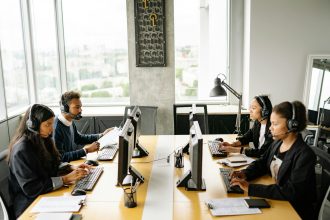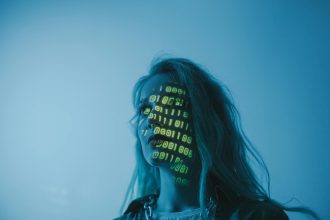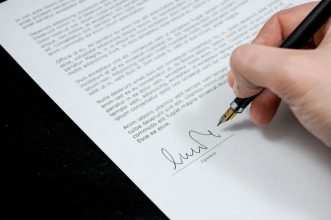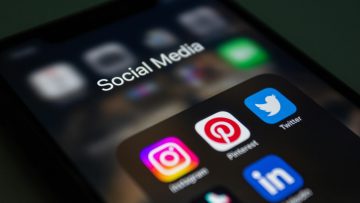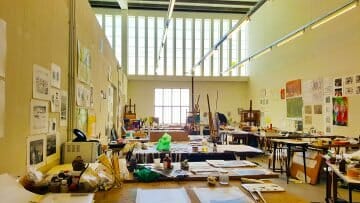
“Imagination does not become great until human beings, given the courage and the strength, use it to create.” Maria Montessori
On the verge of embarking in the second decade of the 21st century, a new (old) fear is spreading its invisible cold winds into all corners of the worlds: the fear of the human versus machine, more exactly, technology as a tool of destruction, seen through the lens of its most scary, dystopic possibilities. The issue that frightens humans the most is jobs. It is through work, that we as humans, behold our sense of purpose and identity and also, in practical matters, gather enough income to pay our bills. And yet, we are in urgent need to face an important problem threatens that established norm: Technology is going to automate all kinds of jobs, which means, people will not be needed to perform those jobs.
But is that so ? And is there any alternatives narratives to such a gloomy story of future times to come? Some of the few jobs that seem to be spaired from that wave of destruction, are the ones connected with imagination and creativity, and also the ones related to social and interpersonal skills. It’s hard for us to imagine our child sitting throughout her or his schooling years, in a classroom led by a robot-teacher, or an automated machine making a deep meaningful film.
So, imagination and creativity are now seen as two powerful skills that can be developed and nurtured in humans, as ways to visualise better futures, bringing us well being to all. We have seen in the past how developing technology guided by the goals of mainstream economics, has collectively produced results we do not want. Learning from the past, how can we tailor technology now to solve the future needs, desires and challenges of the 21st century ? Climate change, rising populations, automation leading to job loss and all kinds of ethical issues around emergent technologies (forming the bulk of the fourth industrial revolution) are some of the most immediate challenges that we will face . These need an urgent answer.
To develop imagination and creativity combining it with acute social awareness, is a very important skill that can be used to find those much needed new solutions. No wonder how educators are now coming to terms how STEAM is so important in the curriculums of future generations. STEAM fields are science, technology, engineering, and mathematics. These are able to help people integrate the classical STEM with the arts, for a more holistic perspective. I will also add the humanistic fields of literature and poetry and the social sciences.
“Creativity is a combinatorial force: it’s our ability to tap into our ‘inner’ pool of resources – knowledge, insight, information, inspiration and all the fragments populating our minds – that we’ve accumulated over the years just by being present and alive and awake to the world and to combine them in extraordinary new ways.” Maria Popova, Brainpickings
The best way to act when facing fearful narratives, is to discover alternative stories, filled with meaning and purpose. After all it is stories what makes the world running and dreams come true. Stories are the glue holding together what we understand as our world. How then, to use imagination and creativity to explore ideas, imagine new stories, and transform them into practice, particularly focusing on the human dimension of technology? How to explore imagination’s potential for the visualisation and then creation of the well being society of the future ?
Imagination and creativity are skills that can be developed. Imagination is the act or power of forming a mental image of something never before wholly perceived in reality, whereas creativity is the act of turning new and imaginative ideas into reality. Creativity is then characterised by the ability to perceive the world in new ways, to find hidden patterns, to make connections between seemingly unrelated phenomena, and to generate solutions. Creativity involves two processes: thinking, then producing. But imagination and creativity need to be used wisely. They need to be framed by a profound sense of purpose and ethics, linking the intelligence of the brain (reason) with the wisdom of the heart (intuition).
Senior Lecturer Otto Scharmer, from MIT , is someone who has dedicated himself to this topic. His ULab Theory presents a series of tools to explore and develop projects, including business ones, by linking reason (brain) with intuition (heart). With a group of colleagues, Scharmer founded The Presencing Institute at the MIT Sloan School of Management as an action research platform at the intersection of science, consciousness, and profound social and organizational change. Over the past two decades, they have developed Theory U as a change framework, led cross-sector leadership, change and innovation initiatives worldwide, and created an innovation platform called u.lab which uses various arts based creative and imaginative tools.
“Storytelling reveals meaning without committing the error of defining it” Hannah Arendt
A positive aspect of the current world is that people are able to connect and develop projects quickly and creativily as never before. The one mentioned previously is one possibility but there are manu more examples. So let’s use those beautiful tools of imagination and creativity (combining them by holding awareness in the heart) to find those alternatives to a world in need of a new narrative, fast tracking it for the wisdom societies of the future.

Founder Dinis Guarda
IntelligentHQ Your New Business Network.
IntelligentHQ is a Business network and an expert source for finance, capital markets and intelligence for thousands of global business professionals, startups, and companies.
We exist at the point of intersection between technology, social media, finance and innovation.
IntelligentHQ leverages innovation and scale of social digital technology, analytics, news, and distribution to create an unparalleled, full digital medium and social business networks spectrum.
IntelligentHQ is working hard, to become a trusted, and indispensable source of business news and analytics, within financial services and its associated supply chains and ecosystems







